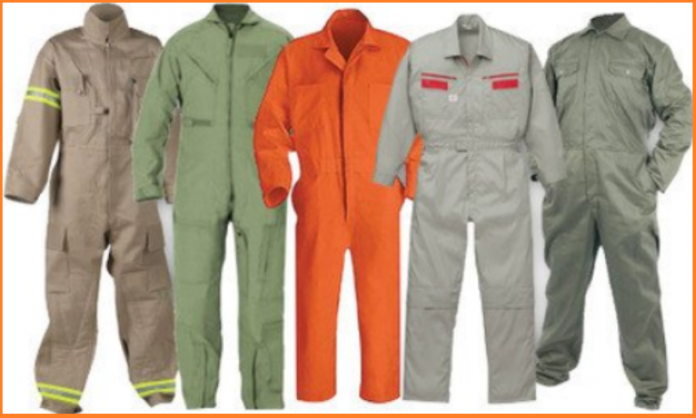In the fast-paced and high-risk environment of the oil and gas industry, safety is paramount. The sector demands continuous innovation to protect workers from potential hazards, especially during hot work activities. One significant advancement in this regard is the use of Inherently Flame-Resistant (IFR) suits. These specialized garments have become indispensable in safeguarding personnel from the dangers associated with hot work processes, ensuring a safer and more secure workplace.
Contents
Hot Work:
Hot work encompasses a range of activities that involve open flames, sparks, or extreme heat. In the oil and gas industry, this can include welding, gas cutting, grinding, and other processes that generate intense heat and sparks. Without proper protective measures, these activities pose a significant risk of fire hazards, putting workers at potential risk of burns or other injuries.
The Need for Inherently Flame-Resistant (IFR) Suits:
Traditional flame-resistant (FR) clothing has been widely used in the industry for years. However, IFR suits take safety to the next level by being inherently flame-resistant from the outset, as opposed to relying on chemical treatments that can wear off over time. This inherent flame resistance significantly reduces the risk of burn injuries, IFR suit coverall protects from industrial flash fires, making IFR suits an ideal choice for hot work applications.
Key Features of IFR Suits:
- Material Composition: IFR suits are typically made from advanced materials such as meta-aramid or para-aramid fibers, which inherently possess flame-resistant properties. These materials are engineered to withstand high temperatures without compromising on durability or comfort.
- Durability: IFR suits are designed to withstand the harsh conditions of the oil and gas industry. They are resistant to abrasion, tearing, and other forms of wear and tear, ensuring a longer lifespan and reliable protection over time.
- Comfort and Breathability: Comfort is a crucial factor in ensuring that workers wear their protective gear consistently. IFR suits are designed with breathability in mind, providing a comfortable fit without sacrificing safety. This allows workers to focus on their tasks without being encumbered by uncomfortable clothing.
- Moisture Management: Working in the oil and gas industry often involves exposure to various environmental conditions. IFR suits are equipped with moisture-wicking properties, helping to keep workers dry and comfortable, even in challenging climates.
- Visibility: Enhanced visibility is essential for ensuring the safety of workers, especially in high-risk environments. Many IFR suits are available in high-visibility colors, incorporating reflective elements to maximize visibility in low-light conditions.
The adoption of Inherently Flame-Resistant suits for hot work in the oil and gas industry represents a crucial step forward in ensuring the safety and well-being of workers. By providing inherent flame resistance, durability, comfort, and other essential features, these suits play a pivotal role in minimizing the risks associated with hot work processes. As the industry continues to prioritize safety, the use of IFR suits is likely to become standard practice, contributing to a safer and more secure working environment for all.
FAQs: Inherently Flame-Resistant (IFR) Suits for Hot Work in the Oil and Gas Industry
- What is an IFR suit, and how does it differ from regular flame-resistant clothing?An IFR suit is Inherently Flame-Resistant, meaning its flame resistance is inherent in the fabric itself, rather than being achieved through chemical treatments. This distinguishes it from regular flame-resistant clothing, which may lose its flame-resistant properties over time.
- Why is flame resistance important in the oil and gas industry?Flame resistance is crucial in environments where hot work processes, such as welding and cutting, generate sparks and intense heat. IFR suits protect workers from potential burn injuries, reducing the risk of harm in the event of a fire.
- What materials are typically used in the construction of IFR suits?IFR suits are commonly made from advanced materials such as meta-aramid or para-aramid fibers. These materials provide inherent flame resistance while offering durability and comfort.
- How durable are IFR suits in harsh industrial environments?IFR suits are designed to withstand the demanding conditions of the oil and gas industry. They are resistant to abrasion, tearing, and other forms of wear and tear, ensuring longevity and reliable protection.
- Are IFR suits comfortable for extended wear?Yes, IFR suits are designed with comfort in mind. They often feature breathability and moisture-wicking properties to keep workers comfortable during extended periods of wear.
- Do IFR suits provide protection against other hazards, such as chemicals or electric arcs?While IFR suits primarily focus on flame resistance, some may offer additional protection against certain chemicals or electric arcs. It’s essential to check the specifications of the specific IFR suit for the desired protection.
- Can IFR suits be used in different climates?Yes, many IFR suits are designed to accommodate various environmental conditions. They often have moisture-wicking properties to keep workers dry and comfortable, making them suitable for different climates.
- Are IFR suits available in different styles and colors?Yes, IFR suits come in various styles and colors to meet different workplace requirements. High-visibility options with reflective elements are also common to enhance worker visibility, especially in low-light conditions.
- How do I care for and maintain my IFR suit?Care instructions may vary, but generally, it’s recommended to follow the manufacturer’s guidelines for washing and maintenance. Avoid using fabric softeners or bleach, and ensure that the suit is properly dried before use.
- Are there standards and certifications for IFR suits?Yes, there are industry standards and certifications that IFR suits may comply with, such as NFPA (National Fire Protection Association) standards. It’s advisable to choose suits that meet or exceed relevant safety standards for the industry.





